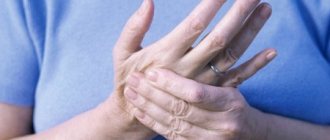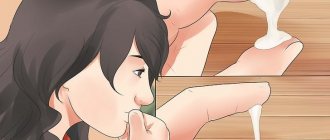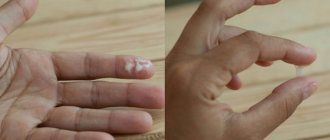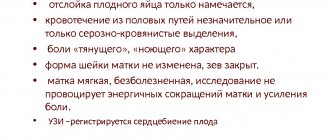Causes
Tremor is the result of involuntary muscle contraction. When the child’s nervous system is tense or overexcited, during feeding, when crying, frightened, or changing clothes, twitching of the baby’s lips, chin, head, and limbs occurs.
This tremor is called physiological and is considered normal for infants up to three months.
Physiological tremor is a consequence of the immaturity of the infant’s peripheral nervous system and increased tone of his muscles, especially the arms and legs.
The nervous system of a newborn changes greatly in the first months of a child’s life, adapting to the new external environment. Reactions, excitability, reflexes change.
Causes that cause tremors:
- Immaturity of the nerve centers of the baby’s brain, which are responsible for muscle contractions and coordination of movement;
- Excess of the permissible amount of the hormone norepinephrine in the blood.
Increased norepinephrine is produced by the adrenal glands due to the immaturity of the medulla and causes contractions of smooth muscles;
Problems of childbirth and intrauterine development.
Rapid or prolonged labor, injuries sustained during childbirth, entanglement of the child with the umbilical cord, threat of miscarriage, infectious diseases of the mother and stress during pregnancy, placental abruption and fetal hypoxia during pregnancy - all this can lead to dysfunction of the baby’s brain and central nervous system. Therefore, tremors often occur.
- Prematurity.
The nervous system of a prematurely born child is initially immature. She did not have time to fully mature during the period of intrauterine development.
The extrauterine formation of the central nervous system occurs much more slowly, so in premature babies the nervous system has a number of features; it cannot respond correctly to external stimuli. Such children always develop tremors and require more attention.
Swimming and gymnastics
If you have not yet decided to send your baby to infant swimming, then you can carry out water procedures at home. If a child has tremors of the limbs, then it will be extremely useful for him to swim, even while in your arms. Let the baby have plenty of play with his hands and feet, and let the water in the bathroom be at the most comfortable temperature.
Gymnastics for a baby is also useful. There are a number of exercises that you can also do with your baby at home.
- Grab your baby's foot with one hand and tap the outside of his leg with the other. This exercise is called the “hammer” and is repeated on both legs alternately.
- Stroke your baby's arms and legs. Take the baby by the hand and, shaking it slightly, lower yourself from the shoulder to the wrist. This exercise should be performed on the legs and arms alternately.
- Stretch your baby's buttocks. To do this, place the baby on his tummy and just lightly tap his butt with your little fists.
Remember that tremors are a completely natural phenomenon and should not cause you to panic. But you must monitor your baby daily. Children under one year old continue to develop, so you need to not miss the moment when you, together with a specialist, can make any adjustments. Doctors note several critical periods in a baby’s life.
In what cases should you consult a doctor?
Tremors usually gradually decrease and disappear by three months. Despite the fact that physiological tremors are normal, young parents are often worried about this.
Very soon another very important event will happen in your baby’s life! Read when babies' first teeth appear
Find out what to do if your newborn hiccups after feeding.
In this case, it is better to consult a pediatrician to rule out possible problems. If tremor does not go away with age, but intensifies, then it is better to consult a neurologist.
A particularly dangerous sign is head tremor . You should also pay attention to trembling that is not associated with nervous tension (crying, fear) or hunger.
In such cases, this is a neurological disorder and a doctor's consultation is required. Tremor may be a sign of the following diseases:
- Hypoxic-ischemic encephalopathy
Neurological disorders caused by oxygen starvation of the brain.
- Hypocalcemia
Reduced serum calcium levels.
- Hyperglycemia
Increased blood glucose levels.
- Neonatal abstinence syndrome
Occurs if the baby is exposed to drugs during pregnancy
- Sepsis
Infectious blood poisoning
- Hypomagnesemia
Reduced magnesium content in blood serum.
- Increased intracranial pressure
Calming conclusions
It is worth returning to the first three months after the birth of the baby. At this time, the baby’s chin trembles quite often and quite noticeably enough to worry an inexperienced mother. The reasons why this happens are already listed above, but it should be emphasized that at this age this phenomenon is quite normal and in the vast majority of cases does not pose any threat to the health of the newborn. This is a normal reaction of a fragile nervous system, and if the chin trembles without any consequences, there is no reason to worry too much.
Surround your little one with care and love, talk to him and don’t believe those who claim that at this age a baby understands absolutely nothing. Even if this is so, the mother’s voice itself has a calming effect on him.
Under no circumstances create artificial stress for your baby - you are not in ancient Sparta and you are not required to raise a stern warrior, especially if you have a daughter. Everything should be natural and calm.
Well, if a misfortune happens and the child is diagnosed with some kind of disease that affects his nervous system, you should not despair and panic either. First of all, this won't help at all. And secondly, modern medicine can cope without any difficulties or consequences.
Good day, dear readers! I remembered an incident from my life - I went to the clinic with my baby for a routine examination. I go into the office to get a card and see my mother: pale, frightened. Through tears, she asks the pediatrician: “What should I do if my newborn’s chin is shaking? How do I know? I thought it was normal!”
A little person in the house is a joy. But all women who have experienced the joy of motherhood will confirm my words: along with happiness in the form of a beloved baby comes fear and anxiety. Parents notice strange actions in the child: he is clumsy, smiles with one corner of his lips, eats awkwardly, etc. It is not always possible to understand whether a child’s behavior is justified by his age or whether he is behaving somehow suspiciously.
In newborns, absolutely any action can be either physiological or pathological.
Let's look at the example of a shaky chin.
1.1. Physiology
- The body is at the stage of development. It is quite normal if the baby’s lower lip trembles (in medical parlance, trembling is called “tremor”) when crying. The internal organs are just beginning to function fully, but the baby is not yet able to control himself and his behavior. Everything in this world is new to him - he’s so used to living in his mother’s womb!
- Stress. Since the baby is not yet strong and has not mastered his new role, he begins to get nervous. Parents may notice that a loud sound causes the baby's lower lip to tremble: the baby has not yet understood whether it is worth crying in this case - or whether such a sound is quite normal in this world (different from womb life).
1.2. Pathology
Here everything is much more serious; it is likely that the child was injured during birth or while “living in the tummy.”
Weight loss product (RUB 149) Joint gel free
The following can harm the unborn baby:
- Excessive amount of amniotic fluid.
- Difficult labor (weak labor), sudden birth, caesarean section.
- Entwining the baby with the umbilical cord.
- Infectious diseases of the mother during pregnancy.
- Severe stress suffered by the parent during pregnancy.
- Trauma during childbirth itself.
Such reasons can lead to disruption of the nervous system (already unstable). Hence the chin tremor.
What should mom do?
In any case, if your newborn experiences tremors, consult your doctor. He will help assess the child’s condition and give further recommendations.
If the pediatrician decides that the child is healthy and does not require further examination, then you can use the following means that have a positive effect on the development of the child’s nervous system:
- Bathing with the addition of soothing herbs (mint, valerian, motherwort).
- Swimming has a very beneficial effect on a child's health.
- Massage and gymnastics should be performed by a specialist.
The main thing is that the baby is surrounded by a calm, friendly atmosphere.
Revitalizing massage technique
This technique is recommended when chin tremor appears in a baby. Massage is also beneficial for healthy children. Doctors advise turning to professionals for massage. Parents can also undergo training and begin performing the procedures independently under the guidance of a specialist.
Before carrying out the manipulation, preliminary preparation is required:
- ventilate the room, dim the lighting, create a comfortable temperature;
- the child should be on a flat surface;
- You should choose a time for massage when the child is in a good mood;
- Nails should be cut short, palms should be lubricated with cream.
The massage is done as follows:
- Perform gentle stroking: start from the fingers to the armpits. The fingers are carefully kneaded and clenched into fists.
- When performing a chest massage, movements are made from top to bottom, to the sides.
- Abdominal massage is performed in a circular motion in a clockwise direction.
- The legs begin to be massaged from the toes upward. They stretch their fingers, squeeze them and unclench them.
- Back massage is performed from bottom to top in a herringbone pattern.
- Repeat each technique 10 times.
To prevent the occurrence of problems, it is necessary to systematically monitor the child’s health and consult a doctor in a timely manner.
Psychology, which is fashionable in our time, explains most of humanity’s problems by the constant stress that fills every day of our lives. But what do all these problems and troubles mean, as a result of which we are all ready for the most desperate actions, compared to the very first stress that cannot be comprehended by an adult?
One has only to try to imagine what a newborn, just born, experiences, and the mind of a sage refuses to understand it. The baby receives such overload on all its still fragile organs and systems that its desperate cry, with which it notifies the world of its arrival, becomes not at all surprising.
However, the matter is not limited to just screaming and you should consider one of the symptoms that can scare an inexperienced mother into hysterics, although in most cases there is absolutely nothing to fear. At least, this is what the famous doctor Komarovsky claims, and there is no reason not to believe him.
Head tremors
Along with chin tremor, head tremor is often encountered in babies. If swaying and twitching of the head occurs during crying, restless sleep or when feeling hungry and goes away by two months, then there is no need to worry.
Otherwise, such a tremor is a sign of the development of hypoxic-ischemic encephalopathy in the baby - damage to the central nervous system due to oxygen starvation of the brain.
It is necessary to consult a neurologist as soon as possible, who, after examination, will prescribe comprehensive treatment under the supervision of a specialist.
How to treat
Head tremors are very difficult to treat. Any tremor should be treated under the supervision of a neurologist. For successful treatment, you must follow all recommendations. The treatment complex includes: drug treatment, therapeutic exercises, massage.
One of the most common pathologies during pregnancy is hypoxia. We tried to collect all the necessary information for you, read further “fetal hypoxia - symptoms and consequences.” One of the most common questions young mothers ask is how to wean a baby from breastfeeding at night? Let's look at the following material together.
Home treatments
Treatment is not always necessary to get rid of tremors. Create a favorable environment at home for your baby. Walking in the fresh air, good sleep, bathing in decoctions of soothing herbs, taking air baths - all this can help the baby get rid of the problem.
We recommend reading the material - the rate of weight gain in newborns by month.
Doctor Komarovsky's opinion
Famous pediatrician E.O. Komarovsky, the author of many books and scientific papers on pediatrics, writes about the problem of tremor:
Treatment options
And again, let's start with the fact that you should under no circumstances panic and start rushing from one specialist to another. The first thing to do in such a situation is to calm down the mother herself. A newborn, despite the fact that, as already mentioned, his nervous system is still very far from perfection, feels his mother’s condition very subtly. When a mother is irritated, scared, or angry at something or someone, the baby perceives this as an alarm signal with all the ensuing consequences. He cries, is capricious, refuses to eat, especially when breastfeeding, and sleeps poorly. The result is a disorder of the fragile psyche and a shaking chin, which not only trembles barely noticeably, but also shakes. The conclusion follows that mommy’s bad mood is one of the main reasons for such troubles.
The second situation: the mother is calm, in a great mood, but the baby still has tremors. In this case, it is worth taking a closer look at what stressful situation for the newborn caused this phenomenon and try to eliminate it. Change your feeding position, put on socks, add warm water to the bath, and so on. It would be useful to master several soothing massage movements.
In such cases, pediatricians recommend bathing the baby in a bath with decoctions of herbs such as valerian, lemon balm, peppermint and oregano. Sometimes you have to resort to pharmaceuticals. The doctor may prescribe antihypoxants (glycine, mydocalm) - drugs that stimulate the flow of oxygen into the tissues.
Why does a newborn's chin and lower lip shake?
Accordingly, the easiest option to calm the baby is to normalize sleep and wakefulness, and try to irritate the baby’s nerves less.
By 3 months, the baby’s system of nerve endings is normalized, most of the reflexes that he had immediately after birth disappear, and new ones characteristic of adults take their place. Normal shaking behavior in newborns:
- If the baby hears a loud sound or scream.
- Immediately after waking up, the mother turned on the light, the baby may shudder sharply, cry, scream. A shaking chin may occur with these symptoms. This is a variant of the norm.
- If the baby is cold. This often happens at an appointment with a pediatrician, especially in winter, when the baby needs to be undressed in order to weigh and measure his growth.
- If the baby is hungry or went to the toilet. How simple processes are for an adult, are a burden for a baby. After all, in the stomach, nutrition occurred through the placenta; the baby himself did not eat anything. Now he needs to try to suck milk from his mother's breast, so hunger, and even normal bowel movements can cause shaking. Some mothers use this sign to determine when the baby goes to the toilet, and use this phenomenon to potty train the baby.
The baby is crying









